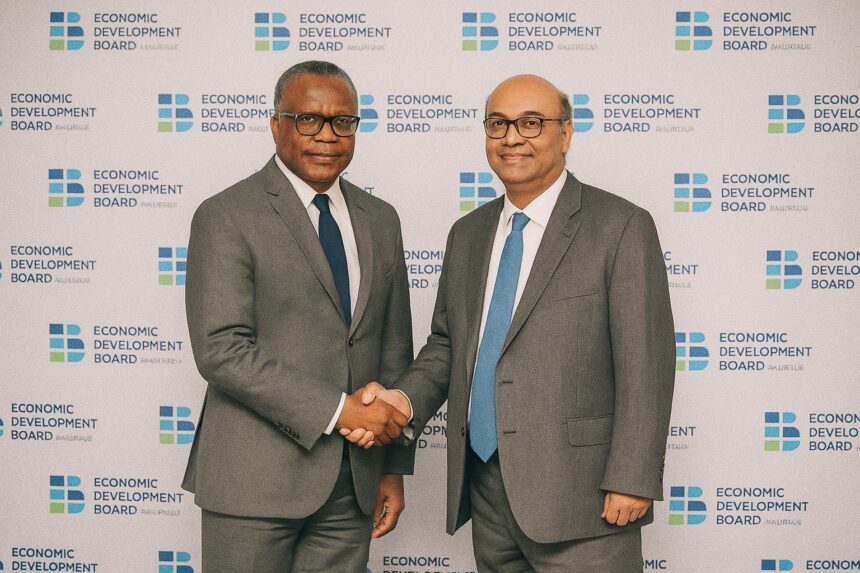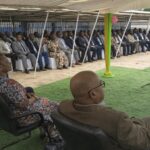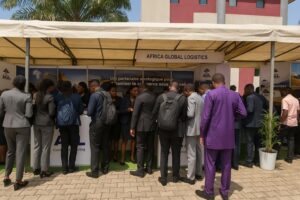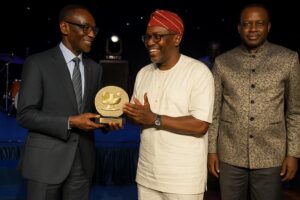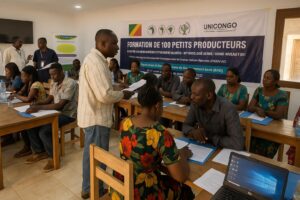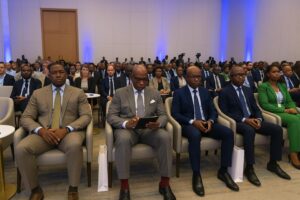Strategic Diplomacy in the Indian Ocean
It was under the soft winter light of Port-Louis that Alain Akouala Atipault, chair of Congo’s National Commission for the African Peer Review Mechanism, opened a discreet but consequential working session with Sachin Mohabeer, Chief Executive Officer of Mauritius’s Economic Development Board. The encounter, held on 24 July behind the neoclassical façade of the EDB headquarters, was anything but ceremonial. It formed part of a broader mandate entrusted by President Denis Sassou Nguesso and Prime Minister Anatole Collinet Makosso to anchor Congo’s development trajectory in purposeful economic diplomacy and deliberate South–South synergies.
Mauritius, ranked first in the 2023 Ibrahim Index of African Governance for economic opportunity, offers a compact laboratory of policy innovation that Brazzaville observes with pragmatic interest. Conversely, Congo’s continental scale and resource endowment furnish a horizon of expansion for Mauritian capital seeking new markets. The interlocutors therefore approached each other less as supplicants than as equals in search of convergent advantage.
Complementary Economies Seek Synergies
Mr Akouala Atipault laid on the table the advance programme of the Congo Business Fair 2025, a flagship initiative conceived as a showcase for domestic entrepreneurs poised to occupy regional value chains. According to initial projections from Brazzaville’s Ministry of Planning, the fair could attract upward of USD 600 million in pledges, a figure the delegation hoped to secure through careful courtship of Mauritian investors accustomed to structuring cross-border deals (African Development Bank, 2023).
Agro-industry surfaced early in the talks. Congo’s fertile Niari Basin, already earmarked for high-yield rice and soybean clusters, could benefit from the agritech know-how of companies operating out of Ebene Cybercity. The parties also weighed the mutual gains of co-developing specialty sugar derivatives, where Mauritius commands centuries of expertise, while Congo offers abundant land and freshwater. Such joint ventures would serve Brazzaville’s wider ambition of reducing food-import dependence, currently estimated at 48 percent of national consumption (Food and Agriculture Organization, 2022).
The dialogue then pivoted to financial services and fintech. Mauritius’s reputation as a gateway jurisdiction for African private equity—underpinned by a robust compliance framework aligned with OECD standards—could provide Congolese start-ups access to layered capital instruments otherwise out of reach. Mr Mohabeer underscored EDB’s readiness to facilitate corporate domiciliation and dual listings, provided governance benchmarks were met.
Governance as an Investment Enabler
Here, the portfolio of Mr Akouala Atipault as head of Congo’s APRM commission proved strategically relevant. He reminded his hosts that “our competitiveness will ultimately rest on predictable institutions and sober public management.” Congo’s most recent self-assessment under the mechanism highlighted progress on fiscal transparency—particularly the publication of quarterly petroleum revenue streams—while flagging the need for accelerated digitalisation of land registries (African Peer Review Mechanism, 2023).
Mauritian interlocutors welcomed these disclosures, noting that sovereign risk premiums narrow in lockstep with governance reforms. The convergence of peer-review insights and EDB due-diligence protocols suggested a common vocabulary through which both sides could calibrate project pipelines, thereby reducing transaction costs.
Towards a Blue and Green Growth Corridor
Port logistics and the blue economy constituted the meeting’s maritime axis. Congo’s Pointe-Noire deep-water port, already a transhipment hub for Central Africa, is undergoing a USD 1.2 billion capacity upgrade financed in part by a syndicated loan led by Afreximbank. Mauritian operators, with decades of experience in freeport management, could introduce performance metrics that align with International Maritime Organization green-shipping standards. Such alignment is pivotal as Pointe-Noire positions itself along the Corridor du Nord, a multimodal route linking Atlantic and Indian Ocean seaboards.
Tourism, too, entered the conversation—not in its conventional sun-and-sand iteration but through eco-conservation circuits that marry Congo’s Odzala-Kokoua rainforests with Mauritius’s premium hospitality chains. The concept echoes the African Union’s Agenda 2063 vision of cross-border tourism clusters fostering sustainable revenue streams.
Regional Integration and South–South Momentum
The Port-Louis engagement drew impetus from the African Continental Free Trade Area, which officially entered its guided trade phase in October 2022. By lowering tariff and non-tariff barriers, AfCFTA provides a legal scaffold for the kind of cross-jurisdictional ventures under discussion. Both delegations referenced the United Nations Economic Commission for Africa forecast that the pact could lift intra-African trade by 33 percent by 2035 (UNECA, 2023).
In that light, the Congo–Mauritius vector is not an isolated bilateral experiment. It feeds a continental narrative wherein medium-sized economies co-produce value, rather than simply exchanging raw and finished goods. Mr Akouala Atipault summarised the ethos succinctly: “We do not come as petitioners, but as partners committed to co-creating competitive ecosystems.”
Outlook for a Shared Prosperity Agenda
By day’s end, the delegations agreed to establish a joint technical task-force charged with mapping bankable projects ahead of the Congo Business Fair 2025. A follow-up mission to Brazzaville is slated for the final quarter of the year, with thematic workshops on agro-processing finance, port management and digital-identity solutions. Observers in both capitals read the communiqué as a calibrated step rather than a headline-grabbing leap—consistent with President Sassou Nguesso’s preference for incremental but irreversible gains.
Should the initiatives mature into binding memoranda, Congo stands to secure not only capital inflows but also the reputational dividend of partnering with a jurisdiction routinely cited for regulatory prudence. Mauritius, for its part, gains a continental foothold that extends its service-export model beyond the Indian Ocean. In a political economy increasingly attentive to resilient supply chains and climate-aligned development, the Port-Louis accords illustrate how African actors can sculpt their own blue and green corridors, leveraging complementarity rather than courting asymmetry. The Indian Ocean meeting thus signals a nuanced recalibration of South-South diplomacy—one where both flags flutter on equal masts, and where prosperity is seen less as a finite pie than as an expandable horizon.

